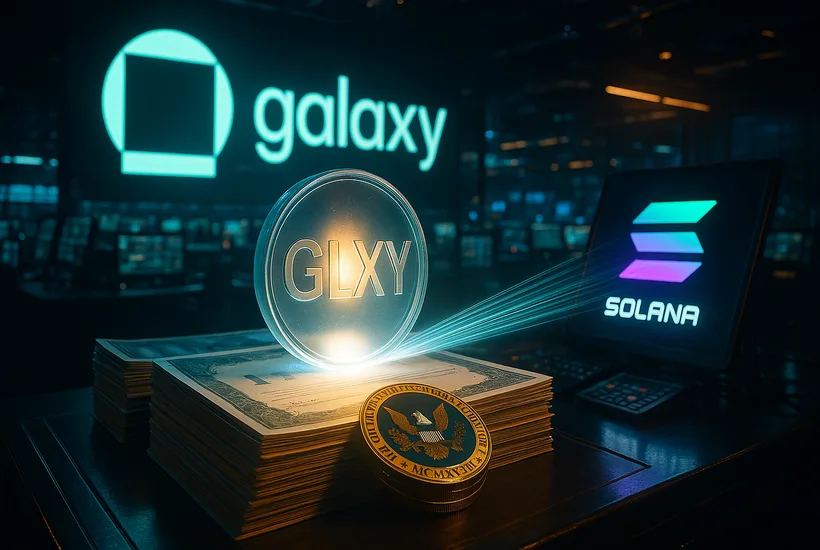Galaxy Digital has launched its tokenized GLXY shares, enabling holders of its SEC-registered Class A common stock to convert shares into tokens on Solana via Superstate, the firm’s digital transfer agent. This launch marks the first time a publicly listed U.S. equity is available in native form on a major public blockchain.
Unlike token wrappers, each on-chain GLXY token represents an actual share with the same legal and economic rights as traditionally held stock. This move is part of Galaxy’s broader effort to digitize financial assets and enhance liquidity on decentralized platforms.
Tokenization process and KYC requirements
The process begins with Know-Your-Customer (KYC) verification through Superstate. Only allowlisted addresses can hold or receive tokenized GLXY shares, ensuring that shareholder records are preserved and meeting Anti-Money Laundering (AML) obligations.
Existing investors can “bridge” their shares by transferring them from their brokerage to Galaxy’s transfer agent, after which they are moved into Superstate’s on-chain-eligible account. For each share, one token is minted and delivered to the investor’s Solana wallet. The process is reversible, enabling tokens to return to the traditional stock format when desired.
Why Solana and why now?
Galaxy selected Solana for its speed, throughput, and its growing role as a high-volume spot trading layer 1 (L1) blockchain. The firm believes that tokenized equities belong on decentralized base layers where no single operator can control essential functions like ordering or settlement.
While Galaxy plans to eventually support Ethereum L1 and may evaluate Layer 2 solutions, it emphasizes the importance of primary issuance on L1 to preserve unilateral exits and minimize centralized choke points.
The launch comes at a time of a friendlier U.S. regulatory environment, with Galaxy and Superstate working with the SEC as the commission seeks feedback on modernizing broker-dealer, custody, secondary market, and lending rules for blockchain-based securities.
Compliance, trading, and AMM updates
At launch, tokenized GLXY can be sent bilaterally between KYC-approved, allowlisted addresses, but Automated Market Maker (AMM) or DEX trading is not yet available. Galaxy views AMMs as autonomous escrow mechanisms that settle deterministically and should not be regulated as “exchanges” under the Exchange Act.
The firm acknowledges that regulatory uncertainty remains, and it will allow AMM connectivity once there is greater clarity on the rules. Until then, on-chain liquidity may be limited, and token prices could diverge from the price of GLXY on Nasdaq. The KYC allowlist design helps prevent typical Miner Extractable Value (MEV) concerns by preventing unknown third parties from interacting with the token contract.
Potential risks and the future of tokenized equities
Galaxy’s launch of tokenized GLXY represents a significant bridge between traditional Wall Street and permissionless blockchain infrastructure. The goal is to enable equity ownership, recordkeeping, and settlement to live on public blockchains, all while maintaining investor protections.
Galaxy predicts that as compliant on-chain equities gain traction, the market will experience an “Uniswap moment,” where faster, cheaper, fairer trading pulls significant volume onto decentralized platforms. However, the firm acknowledges several risks, including regulatory determinations that could force changes or unwinds, liquidity fragmentation that may widen spreads, and operational frictions until standardization occurs.



